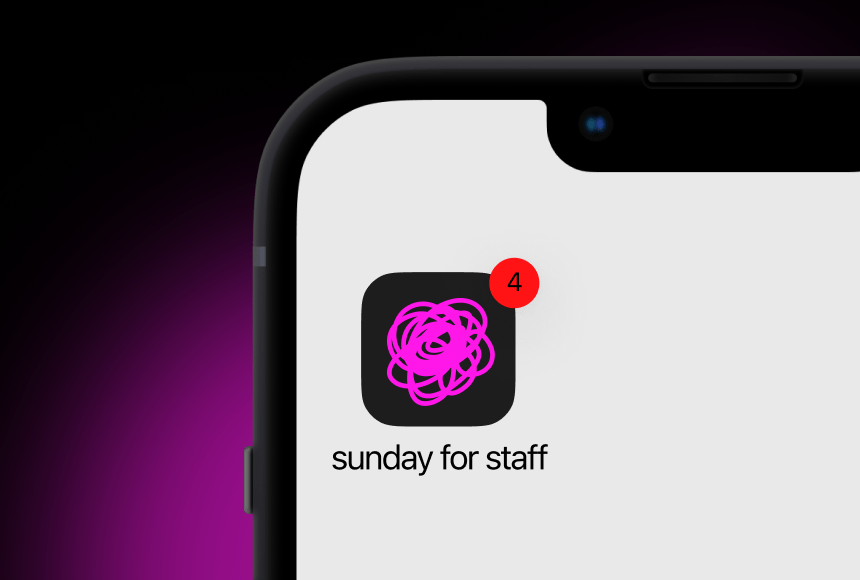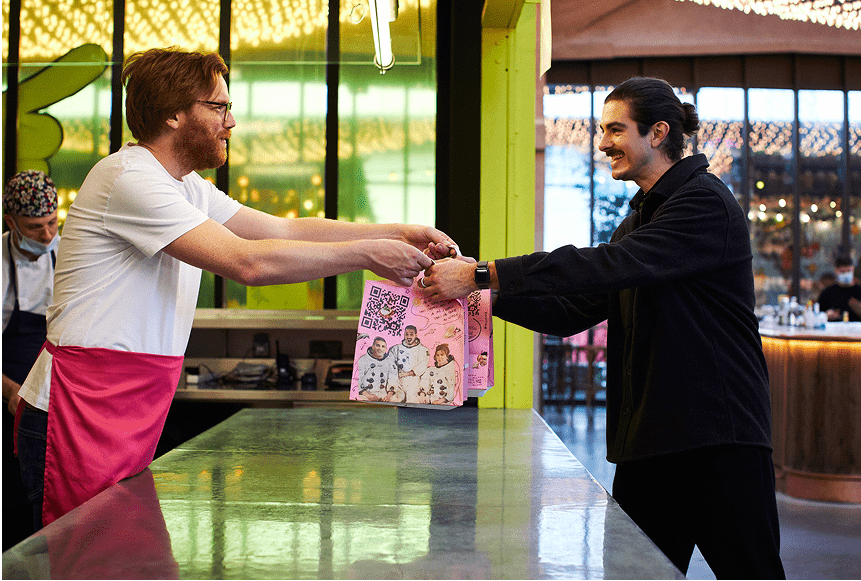
Proven Strategies to Keep Your Best Restaurant Staff Engaged
Understanding the High Stakes of Employee Retention
Running a successful restaurant is about more than just cooking up delicious dishes. It’s about harmony in the kitchen, impeccable service on the floor, and a sense of family throughout your establishment. Employees who feel valued, trained, and part of a supportive team are the secret ingredient. Yet, many restaurateurs grapple with high turnover—a recurring headache that drains time, money, and morale.
According to UKHospitality, hospitality businesses in the UK collectively employ over three million people, but the sector is often plagued by above-average staff churn. When a skilled chef leaves or a front-of-house superstar quits, you lose more than just a warm body. You lose expertise, customer relationships, and continuity that’s tough to replace.
So how do you keep your best staff engaged? Think of it like perfecting a beloved house specialty: it requires the right ingredients, good timing, and consistent effort. In this article, we’ll walk through the steps to keep your restaurant team thriving, from fair compensation to growth opportunities and beyond.
1. Prioritise Competitive Pay and Benefits
Money may not buy happiness, but in a highly competitive industry, offering fair pay is the first step to nurturing loyalty. While the UK National Living Wage serves as a baseline, experienced staff—especially those with a knack for creating memorable guest experiences—expect more than the legal minimum.
- Benchmark Against Competitors: Regularly review what local establishments pay, then aim to match or exceed it.
- Offer Incremental Raises: Reward dedication and performance with modest but regular pay increases, so staff see a clear financial incentive to stay.
- Invest in Benefits: Simple perks like free staff meals, gym memberships, or partial medical coverage send a powerful message about employee well-being.
- Transparent Tip Policies: If your restaurant has a tip-sharing system, ensure it’s transparent and fair. That includes tips left through smart terminals or QR-code payments, which should be properly accounted for and distributed.
When employees feel recognised financially, they’re more willing to go the extra mile. A colleague who’s happy with their pay is more likely to provide consistently high-quality service and become an ambassador for your brand—spreading the word that your restaurant truly values its people.
2. Build a Culture of Respect and Teamwork
Culture goes beyond the warm lighting in your dining room or the witty text on your menu. It’s about how people treat each other behind the scenes: how the head chef talks to the dishwasher during a busy service, how the manager handles a scheduling conflict, or how quickly issues are resolved.
Creating a positive, respectful culture means:
- Leading by Example: If you’re the owner or manager, model the behaviour you want to see. Show humility, thank employees for hard work, and stay calm when problems arise.
- Encouraging Open Communication: Nobody wants to feel like they’re walking on eggshells. Hold regular, informal check-ins or brief “team huddles” to sort out issues and share ideas.
- Promoting Peer Support: One way to improve cohesion is to pair new hires with seasoned staff mentors. Not only does this ease onboarding, but it also fosters stronger bonds across the team.
- Handling Conflict Fairly: Address disagreements quickly and impartially. Staff will notice—and appreciate—your commitment to fairness.
When your restaurant has a culture that feels supportive, you get a team that’s genuinely happy to come to work. Guests will sense that positive vibe, and it will reflect in every aspect of their dining experience.
3. Invest in Training and Personal Development
Imagine you hire a promising sous chef who’s itching to learn new techniques. If you never offer any avenues for training or growth, they might soon jump ship to a competitor where they can sharpen their skills. The same logic applies to front-of-house staff: if they feel stagnant, they’ll look elsewhere for opportunities.
Practical ways to invest in training:
- Regular Workshops: Bring in experts for wine pairing, cocktail creativity, or advanced cooking techniques. Many local suppliers will gladly demo their products and share knowledge.
- Cross-Training: Encourage employees to learn multiple roles. A server who understands the basics of the kitchen can better communicate with cooks—and vice versa.
- Management Track: Offer training for those interested in stepping up to supervisory or managerial positions. Being transparent about leadership pathways shows staff you’re invested in their future.
Investing in your team’s growth not only elevates service quality but also signals you see them as integral to the long-term vision of your restaurant. And that sense of partnership goes a long way toward loyalty.
4. Embrace Flexible Scheduling Where Possible
Restaurant work often comes with unpredictable hours. Late-night closings followed by early-morning shifts can wear staff down. Whenever possible, strive for schedules that respect work-life balance.
- Fair Rotations: Distribute peak or less desirable shifts equitably, so the same people aren’t always stuck with the toughest hours.
- Advance Notice: Give employees their schedules well ahead of time, allowing them to plan personal commitments.
- Open Shift Swaps: Use a transparent system—like an online calendar or staff app—where employees can request to swap shifts. That fosters teamwork and reduces last-minute no-shows.
Flexibility shows respect for employees’ personal lives. A content, well-rested team delivers better customer service and is less likely to burn out or quit unexpectedly.
5. Adopt Technology That Lightens the Load
Think of technology as your secret sous chef—always there to reduce heavy lifting behind the scenes. Effective tools can simplify everyday tasks, minimise bottlenecks, and even make your restaurant more appealing to workers who value modern solutions.
- Digital Rostering: Online scheduling platforms allow staff to view their shifts, request changes, and track hours with a few taps. Fewer admin hiccups mean happier employees.
- Smart Payment Solutions: Long queues at the card machine can fray nerves on both sides of the counter. A platform like Sunday helps customers pay via QR code, tip conveniently, and even leave a quick Google review. That translates to faster table turnover, reduced payment friction, and less stress for servers.
- Inventory Management Software: Automate orders and track usage to prevent the dreaded “We’re out of that” scenario. A well-stocked kitchen means fewer last-minute scrambles.
- Table Reservations and POS Integration: Making sure these systems communicate seamlessly will help you forecast busy periods and staff accordingly.
Adopting user-friendly tech shows employees that you value efficiency and want to equip them with tools for success. When your staff can focus on delivering great service—rather than wrestling with outdated systems—they’re more likely to stick around.
6. Recognise and Reward Contributions
The restaurant industry moves at breakneck speed. Amid hectic services and endless to-do lists, it’s easy to forget the simple power of a sincere “thank you.” Publicly acknowledging achievements—big or small—creates an uplifting environment and reaffirms each individual’s importance.
Ways to celebrate success:
- Spot Bonuses: Surprise your top seller or a stellar kitchen porter with a small financial bonus or gift card.
- Employee of the Month: Feature them on a staff board or in a team newsletter, highlighting a specific achievement.
- Team Celebrations: When you hit a milestone—like a record-breaking weekend—treat the entire team to a little after-service celebration.
- Regular Feedback Sessions: Go beyond annual reviews. Short, frequent feedback loops let employees know what they’re doing well and how they can improve.
Employees thrive on recognition. When your staff feel appreciated, they reciprocate with loyalty and consistent, high-quality performance.
7. Encourage a Healthy Work-Life Balance
Working in hospitality can be stressful. Late nights, unpredictable rushes, and demanding customers all add up. If your team doesn’t have ways to decompress or feel supported, burnout can creep in.
- Set Realistic Expectations: Overloading staff with back-to-back shifts might fill your rota, but it drains energy quickly.
- Promote Mental Health Resources: Partner with local organisations or direct employees to services where they can receive support if they’re feeling overwhelmed.
- Breaks and Meal Times: Ensure your team has dedicated breaks to sit down, eat, and recharge—even on busy days.
A restaurant that respects personal well-being builds a positive reputation. You’re more likely to attract—and retain—professionals who want more than just a job: they want a sustainable career.
8. Foster Internal Promotions and Clear Career Paths
One of the most effective ways to show employees you’re serious about retention is to develop talent from within. Promote deserving staff to higher roles or expand their responsibilities. This not only rewards their dedication but also provides the invaluable benefit of continuity.
- Manager-in-Training Programs: Identify star servers or chefs with leadership qualities and mentor them. Give them a taste of scheduling, inventory, or conflict resolution so they grow into the role.
- Progress Roadmaps: Be transparent about the criteria for advancement. If a line cook wants to become a sous chef, spell out the skills and experience they need. Then help them get there.
- Regular Check-Ins: Sit down with each team member once a quarter to discuss goals, progress, and next steps. They’ll appreciate your hands-on approach to career development.
People who see a future with your restaurant—and know the path to get there—are much more likely to remain loyal.
9. Seek and Implement Staff Feedback
Retention is a two-way street. While you can guess what employees want, there’s no better way to know than to ask. Constructive input from your team helps you adapt to challenges and spot new opportunities for improvement.
Try:
- Anonymous Surveys: Give employees a safe channel to voice opinions on everything from management style to menu items.
- Suggestion Box: A physical or digital suggestion box can be surprisingly effective for collecting quick ideas.
- Open-Door Policy: Encourage staff to speak with you freely, whether it’s about scheduling conflicts, customer issues, or pay concerns.
The crucial step is acting on feedback. If employees offer constructive ideas—like a new rotation system for weekend shifts—seriously consider implementing it. When staff see real change, they trust that their voices matter.
10. Plan for the Future: Setting the Table for Long-Term Success
While the hospitality industry can be unpredictable, you can create a stable environment by carefully planning for the ups and downs. Think of it like preparing for a busy Saturday dinner rush: if you stock your kitchen with fresh ingredients, schedule the right number of servers, and get your card machines or smart terminals ready for seamless checkouts, you’ll handle the flow with grace.
A robust retention plan helps you maintain consistency. Loyal staff understand your standards, build rapport with regulars, and uphold your brand’s identity. This reliability keeps customers coming back—for the food, the service, and the friendly faces they’ve grown to know.
Remember that technology can play a pivotal role here. With sunday, you can allow guests to settle their bills quickly via QR codes, reduce table turnover times, and let staff focus on delivering exceptional service. When the day-to-day stress of managing payments and tips is simplified, your employees can direct their energy where it truly matters—engaging with diners and building relationships that last.
Ultimately, no single retention strategy stands alone. Combine competitive pay, a respectful culture, ongoing training, and modern tech solutions to create an environment where talented professionals want to stay. By keeping your best people around, you not only preserve valuable skills but also establish a magnetic reputation, drawing in fresh talent and loyal customers alike.
Find out more today
Drop us your details below and we’ll reach out within the next 24
Get the full, detailed picture.
sunday elevates your business with insightful data, instant feedback and precise analytics.




